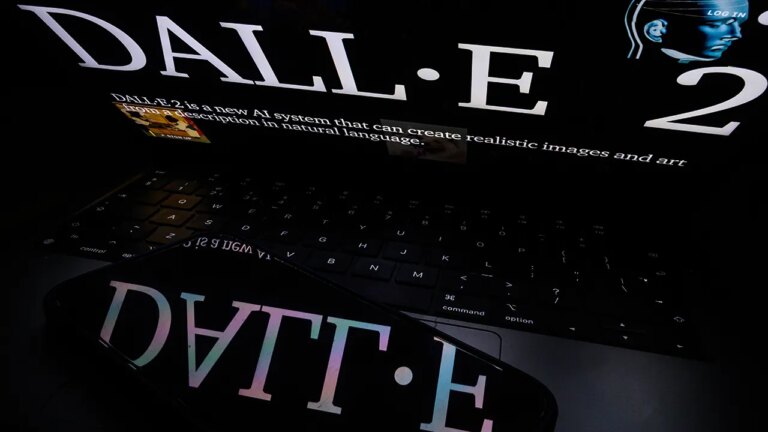
With the rapid emergence of artificial intelligence, which is quickly making its way into the daily lives of individuals around the world, there are a lot of questions circulating about the new technology.
Artificial intelligence has existed for a long time, but its capacity to emulate human intelligence, and the tasks that it is able to perform have many worried about what the future of this technology will bring.
Here are answers to some of the big questions surrounding artificial intelligence.
REGULATION COULD ALLOW CHINA TO DOMINATE THE ARTIFICIAL INTELLIGENCE RACE, EXPERTS WARN: ‘WE WILL LOSE’
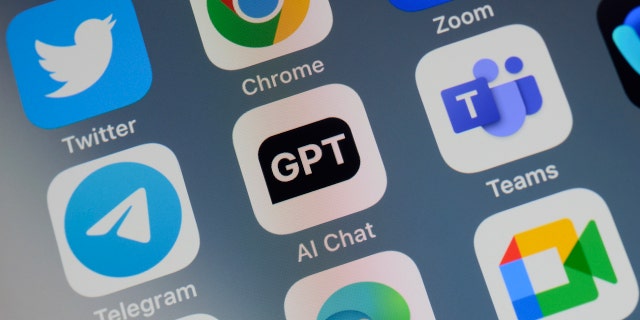
There are lots of questions about artificial intelligence, especially with the emergence of AI chatbots like ChatGPT. (iStock)
- Who invented artificial intelligence?
- What are the leading artificial intelligence companies?
- How does artificial intelligence work?
- What was the foundation of AI?
- What does the future of AI hold?
- How has AI changed the world?
- What are some key AI events in history?
1. Who invented artificial intelligence?
There are major names that have often been credited as the founding fathers of artificial intelligence. One such individual is Alan Turing, a British logician, computer scientist and mathematician who made major contributions to the field before his death in 1954. These include his creation of the Turing Machine, which implements computer algorithms, and his famous work “On Computable Numbers, with an Application to the Entscheidungsproblem”, concepts which paved the way for the function of modern computers.
Warren McCulloch and Walter Pitts wrote “A Logical Calculus of the Ideas Immanent in Nervous Activity,” which built on the artificial intelligence model begun by Turing by describing a neural network, according to HistoryofInformation.com. A neural network enables computers to process information in a way that simulates human brain activity. John McCarthy is credited with coining the term in 1955, according to ComputerHistory.org. He also was the inventor of Lisp, which became the preferred programming language for AI work.
2. What are the artificial intelligence companies?
There are lots of players in the AI game. Many companies are widely using artificial intelligence as they conduct business and compete across the globe.
WHAT ARE THE DANGERS OF AI? FIND OUT WHY PEOPLE ARE AFRAID OF ARTIFICIAL INTELLIGENCE
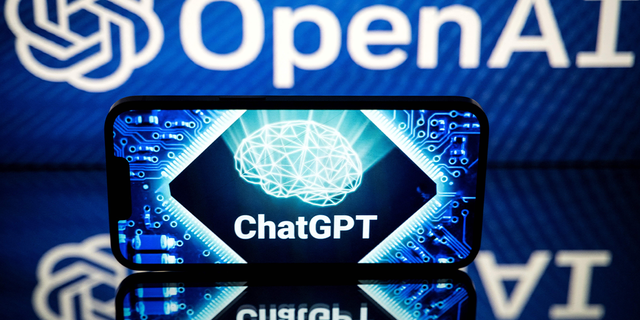
ChatGPT is an AI chatbot that was created by the company OpenAI. ((Photo by LIONEL BONAVENTURE/AFP via Getty Images))
One of the biggest artificial intelligence companies that has made a splash recently is OpenAI, which has a partnership with Microsoft. If you aren’t familiar with OpenAI, you are probably familiar with its product, ChatGPT.
ChatGPT has become one of the most talked about AI systems in history. It is “trained to follow an instruction prompt and provide a detailed response,” according to the OpenAI website. When operating ChatGPT, a user can type whatever they want into the system, and they will get an AI-generated response in return.
ChatGPT has raised public concern, prompting some AI leaders like Elon Musk to call for ethical guidelines with respect to AI regulation.
OpenAI’s ChatGPT has dominated the AI conversation of late, but many other companies are exploring, developing, and investing in the revolutionary technology.
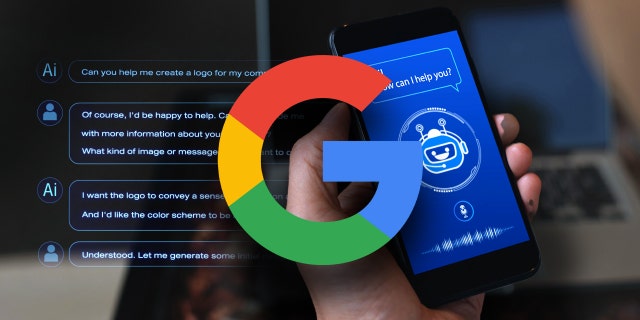
Google has its own chatbot called Bard. (iStock)
ARTIFICIAL INTELLIGENCE ‘GODFATHER’ ON AI POSSIBLY WIPING OUT HUMANITY: ‘IT’S NOT INCONCEIVABLE’
Google recently launched its own chatbot AI system called Bard. Adobe also offers AI products, including Sensei, which is billed to “bring the power of AI and machine learning to experiences” and Firefly, which employs generative AI technology.
Amazon also uses AI. If you have ever used Amazon, you are accustomed to seeing product recommendations. This is one way the company uses AI, by figuring out what kind of products you may be interested in purchasing based on your previous search and purchase history. Amazon also has its AI assistant Alexa hooked up to all its Echo devices. You can ask Alexa any question you like, and the system will give you an answer.
Apple offers the AI software Siri, which works similarly to Alexa. AI is also used in Apple Maps and with its face identification capabilities.
Baidu is a Chinese company which is a competitor to Google. The platform has developed voice cloning technology which is regarded as highly authentic, prompting concerns of deepfakes. In 2018, its research arm claimed the ability to clone a human voice in 3 seconds.
IF AI ‘SPINS OUT OF CONTROL,’ WILL THE BOTS REFELCT VALUES FROM CHINA OR THE US?
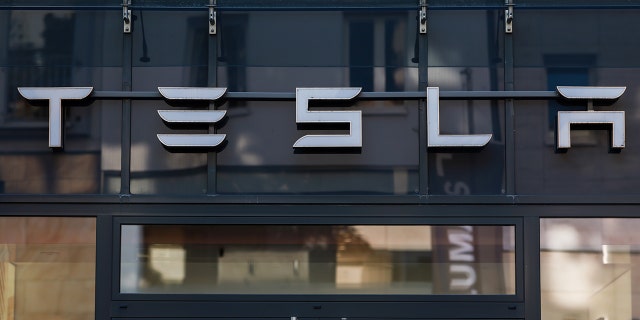
Tesla vehicles are an example of artificial intelligence in practice although the company’s founder, Elon Musk, has spoken out about the need to regulate AI. (Jeremy Moeller/Getty Images)
IBM is another AI pioneer, offering a computer system that can compete in strategy games against humans, or even participate in debates. JD.com, the Chinese e-commerce giant, has also made large investments in AI. Company founder Richard Liu has embarked on an ambitious path to be 100% automated in the future, according to Forbes.
Another commonly known company with strong artificial intelligence roots is Tesla, the electric vehicle company founded by Musk that uses AI in its vehicles to assist in performing a variety of tasks like automated driving.
3. How does artificial intelligence work?
An analysis of how artificial intelligence functions is difficult due to its extreme complexity.
Fundamentally, artificial intelligence works by “combining large amounts of data with fast, interactive processing and intelligent algorithms, allowing the software to learn automatically from patterns or features in the data,” according to SAS.com.
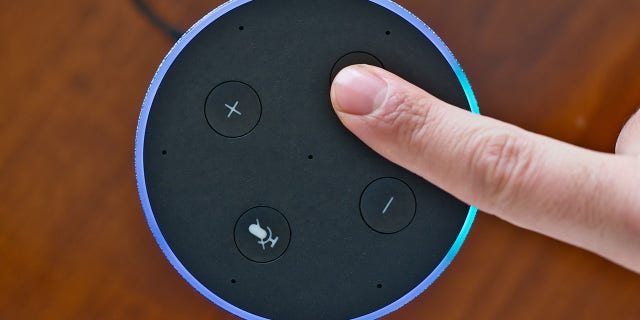
Amazon’s Alexa, which is found on many of the company’s devices, like the Echo, is an example of AI at work. (iStock)
AI EXPERT WARNS OF TOO MUCH ‘HYPE’: HUMANS WILL STILL BE IN CHARGE, WON’T BE ‘PETS’ TO NEW TECH
In other words, different types of artificial intelligence software are, in a sense, able to study and absorb the information that they need, allowing them to learn, adapt, and improve, in a way that mirrors human learning.
Artificial intelligence is an umbrella term that covers many different areas of technology.
There are four main types of artificial intelligence: reactive machines, limited memory, theory of mind, and self-awareness, according to Govtech.com.
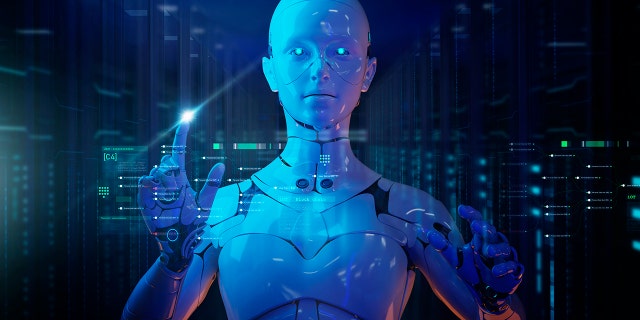
There are four main types of AI, reactive machines, limited memory, theory of mind and self-awareness. (iStock)
ARTIFICIAL INTELLIGENCE: FREQUENTLY ASKED QUESTIONS ABOUT AI
Reactive machines refer to the most basic kind of artificial intelligence in comparison to others; this type of AI is unable to form any memories on its own or learn from experience.
Limited memory artificial intelligence, unlike reactive machines, is able to look into the past. A common example of a limited memory artificial machine is a self-driving car.
Theory of mind AI involves very complex machines that are still being researched today, but are likely to form the basis for future AI technology. These machines will be able to understand people, and develop and create complex ideas about the world and the people in it, producing their own original thoughts.
Finally, the last frontier in AI technology revolves around machines possessing self-awareness. While leading experts agree that technology such as chatbots still lacks self-awareness, the skill at which they engage in mimicry of humans, has led some to suggest that we may have to redefine the concepts of self-awareness and sentience.
ARTIFICIAL INTELLIGENCE QUIZ! HOW WELL DO YOU KNOW AI?
4. What was the foundation of AI?
Philosophy, mathematics, economics, neuroscience, psychology, computer engineering and linguistics have all been disciplines involved in the development of AI.
Scientists and researchers involved in these fields developed the most basic form of artificial intelligence: reactive machines. Reactive machines are the foundation of more complex AI.
This AI base has allowed for more advanced technology to be created, like limited memory machines.
5. What does the future of AI hold?
In the future we may envision fully self-driving cars, immersive movie experiences, robots with advanced abilities, AI in the medical field. The applications of AI are wide-ranging and are certain to have a profound impact on society.
CLICK HERE TO GET THE FOX NEWS APP

AI will greatly impact the medical field, in such areas as disease diagnosis. (iStock)
AI has already advanced so rapidly that it is hard to predict what will happen just a few years from now. What is likely to happen is that AI will make its way into pretty much every part of our lives and every facet of our economy in some fashion.
AI could be used more in healthcare to do things like make diagnoses and help doctors make decisions about a patient’s care.
AI may also be used more to perform simple everyday tasks, like assist with household chores.
Self-driving cars will likely become widespread, and AI will play a large role in manufacturing, assisting humans with mechanisms like robotic arms.
Even the entertainment industry is likely to be impacted by AI, completely changing the way that films are created and watched.
AI EDUCATION: GATHER A BETTER UNDERSTANDING OF ARTIFICIAL INTELLIGENCE WITH BOOKS, BLOGS, COURSES AND MORE
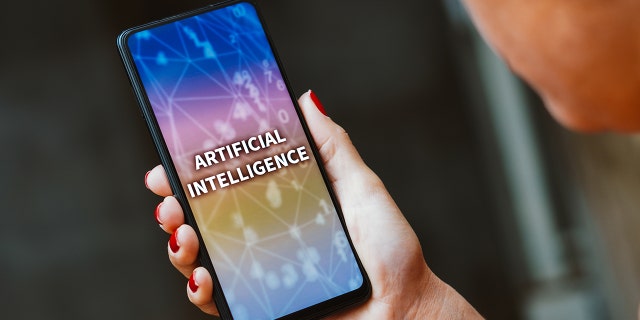
Artificial intelligence will continue to change the world in the future. (Rafael Henrique/SOPA Images/LightRocket via Getty Images)
Strong AI is also a possibility in the future. Right now, strong AI only exists in the domain of Hollywood films, but with rapid technological advancement, science fiction may become reality. Strong AI is essentially a type of artificial intelligence that seeks to create intelligent machines able to emulate the human mind.
While it is hard to predict the future of AI, undoubtedly it will have a major impact on human lives and there will be few industries which do not feel its effects.
6. How has AI changed the world?
AI has changed a lot of fundamental aspects of day to day life, especially when it comes to work and the ways we communicate with one another.
AI has made lots of things easier for humans, like being able to use a GPS on our phones to get from point a to point b instead of the alternative of using a paper map to get directions. The more advanced AI that is being introduced today is changing the jobs that people have, how we get questions answered and how we are communicating.
Lots of jobs have already been affected by AI and more will be added to that list in the future. A lot of automated work that humans have done in the past is now being done by AI as well as customer service-related inquiries being answered by robots rather than by humans. There are also lots of different AI software being used in tech industries as well as in healthcare.
WHO IS WATCHING YOU? AI CAN STALK UNSUSPECTING VICTIMS WITH ‘EASE AND PRECISION’: EXPERTS

Snapchat’s My AI feature is one example of an AI chatbot. (Muhammed Enes Yildirim / Anadolu Agency via Getty Images)
AI has changed the way people learn, with software that take notes and write essays for you and has also changed the way we find answers to questions. There’s very little time spent going through a book to find the answer to a question, because answers can be found with a quick Google search. Better yet, you can ask your phone a question and an answer will be verbally read out to you. You can also ask software like ChatGPT or Google Bard practically anything and an answer will be quickly formatted for you.
With chatbots on the rise, AI has also changed the way we communicate with others. Now, you can have ongoing conversations with a bot and get an immediate response, like with Snapchat’s My AI feature.
It has also changed the way we conduct daily tasks like commutes with self-driving cars and the way we do daily chores with tools like robotic vacuum cleaners.
These are just a few ways AI has changed the world, and lots more changes will come in the near future as the technology expands.
7. What are some key AI events in history?
Even though AI is being talked about now more than ever, the tech has been around for quite a while and there are many historical milestones for the technology that has happened over a long range of time.
CLICK HERE TO GET THE FOX NEWS APP
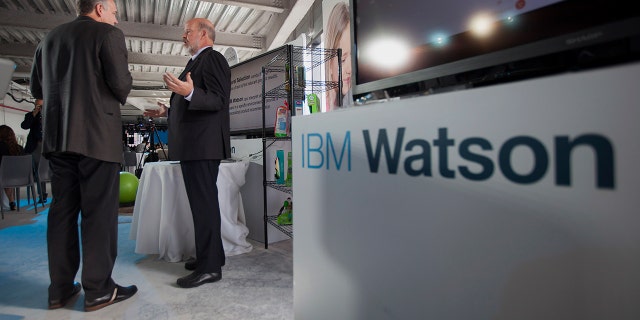
IBM Watson AI technology was used to win “Jeopardy” in 2011. (Michael Nagle/Bloomberg via Getty Images)
One of the earliest key events in AI was the development of the Turing Machine by Alan Turing, and his famous work “On Computable Numbers, with an Application to the Entscheidungsproblem”, concepts which paved the way for the function of modern computers. This all took place before his death in 1954.
Another key moment in AI came when McCarthy coined the term “artificial intelligence” and created the LISP language for the IBM 704 computer in 1958.
In the late 1990s, there was the creation of the robot pet dog, released by Sony.
When AI started to become more advanced, it began to surpass humans at certain things. For example, in 2011, IBM’s Watson computer competed against past “Jeopardy” winners and won by large margins. In 2016, Google DeepMind’s AlphaGo beat the Go world champion Lee Sedol.
There have also been historical AI events that have happened in the media, such as in the movie “2001: A Space Odyssey” where an AI called HAL 9000 is introduced. Some other monumental AI-related movies are “I, Robot,” “Blade Runner” “WALL-E” and “The Matrix.”


